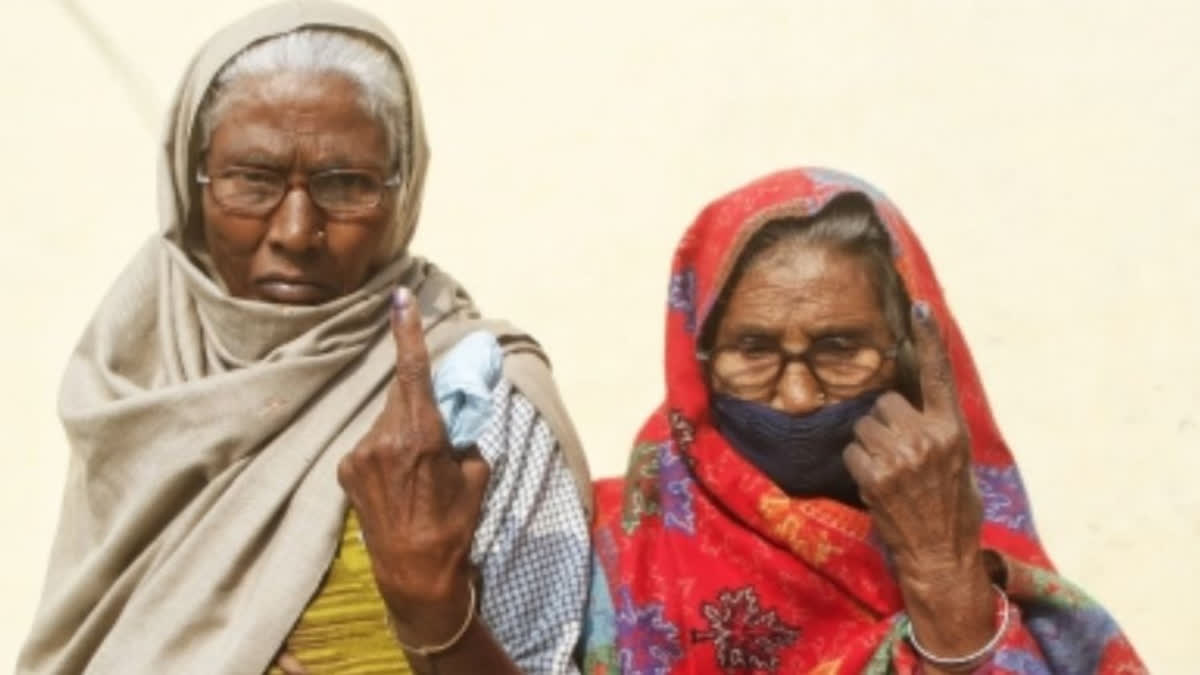New Delhi:Gul Shivadasani of Delhi thinks the Election Commission's 'Vote From Home' scheme for people aged 85 and above and those with more than 40 per cent disabilities is a welcome step but the Delhi resident would still prefer to cast his vote at the polling booth. For Shivadasani, voting is more than a civic duty -- it's an opportunity for him to engage with the wider community.
"Stepping into the polling booth is one of the few chances I have to interact with people beyond the confines of my home," said Shivadasani, whose outings are mostly restricted to routine medical check-ups or festival gatherings. The Election Commission, while announcing the Lok Sabha polls schedule, unveiled the 'Vote From Home' scheme, designed to facilitate the participation of citizens aged 85 and above and individuals with more than 40 per cent disabilities in the elections.
While commending the decision, Shivadasani finds himself at a crossroads. "It's a commendable decision but I still prefer casting my vote at the polling booth," Shivadasani said, echoing the sentiment of many in his age group. "At home, there is a possibility of my children influencing my decision. At the booth, however, I am confident of making my choice," he added.
Shivadasani's hesitance mirrors the cautious stance adopted by elderly and disabled voters toward the initiative. Shabnam Begum, a wheelchair user in Aligarh, said, "Voting is a deeply personal choice and I value the experience of physically casting my ballot. There is also a fear of undue influence (through such schemes)."
While activists acknowledged that most individuals with disabilities and the elderly would prefer to vote in person, they argued that some require this facility due to the severity of their condition. "However, more concerted efforts at raising awareness are imperative," said Muralidharan, general secretary of the National Platform for the Rights of the Disabled (NPRD).
Not everyone shares Shivadasani's misgivings about the scheme. Feroza Jahan, a 90-year-old Noida resident suffers from paralysis, which has prevented her from casting her vote for more than three decades. "When I heard about the scheme, I was thrilled at the prospect of being able to vote. Though I encountered some difficulties understanding the process, I have registered and eagerly await the opportunity (to vote)," she said.
Citizens aged 85 and above and persons with disabilities can opt for postal ballots and cast their votes from homes, Chief Election Commissioner Rajiv Kumar had said while announcing the Lok Sabha polls schedule. "Generally the tendency has been that the senior citizens want to participate in the process and walk to the booth. This time, we have given them the option to vote from their homes," Kumar had said.
Explaining the process, disability rights activist Dr Satendra Singh said the respective booth level officer will contact a voter who has applied for a ballot under the scheme within a five-day deadline, varying from phase to phase. A team comprising two poll officials, a videographer and a security personnel will visit the elector's residence at the designated time and date, with a prior intimation sent through SMS, Singh said.
He emphasised that missing the visit would result in the loss of the opportunity to vote, whether through postal ballot or Electronic Voting Machine (EVM). Himanshu Raha, founder-chairman of Agewell Foundation, said tracking how many elderly there are is a challenge. "The last census was in 2011, so knowing the number of elderly above 85 years and the number of people with 40 per cent disability is very difficult Most of these people have not even stepped out of their homes for a long time. So, for them to proactively pursue this would be difficult," he said.
According to the 2011 census, there were 2.68 crore disabled people -- 2.21 per cent of India's population that year. There were nearly 10.40 crore elderly people (aged 60 and above) -- 5.30 crore women and 5.10 crore men. Lok Sabha polls will be held in seven phases from April 19. The votes will be counted on June 4.
